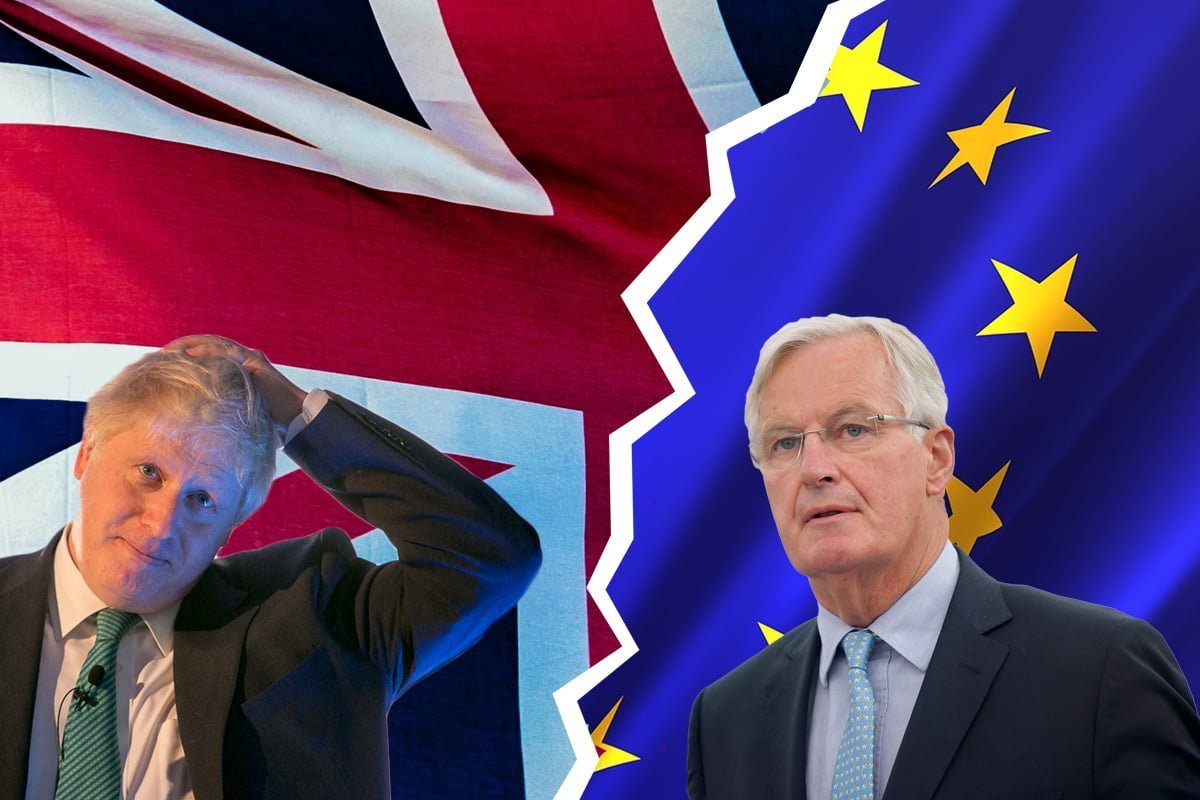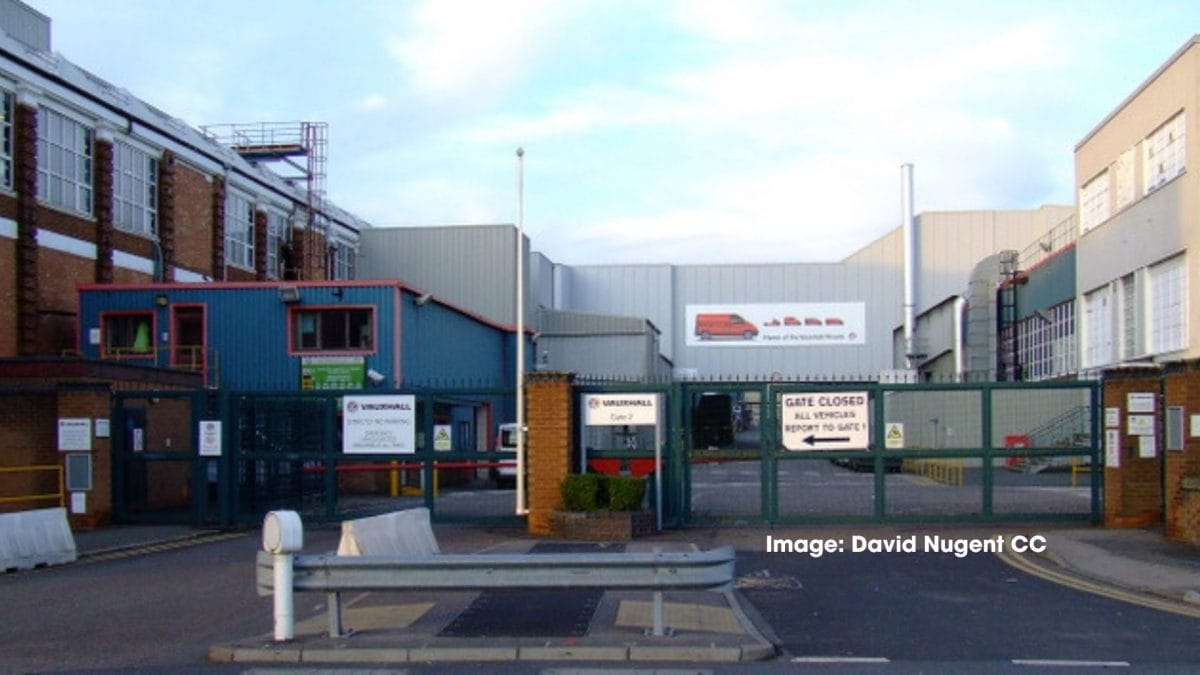Only weeks after ‘Getting Brexit Done’, Boris Johnson has already pledged to use Britain’s newly gained ‘sovereignty’ to rip up workers’ rights. The stage is set for a showdown – both with Brussels and with the working class.
At midnight on 31 December 2020, Boris Johnson’s 11th hour Brexit deal came into effect. Seemingly he had managed to Get Brexit Done. Or had he?
With this deal, Boris claims to have achieved the impossible. Britain has “taken back” many of the powers previously resting with Brussels. At the same time, trade – we are told – will remain tariff free.
This last part isn’t quite true. Tariffs have been slapped on a whole range of products based on rules of origin. The deal has thrown many supply chains into chaos.
But leaving this little detail aside, Boris claims both to have had his cake and to have eaten it. In reality though, this deal is an illusion. It guarantees tariff-free trade only insofar as a “level playing field” for trade is maintained.
Any attempt to upset the playing field – by flexing state aid rules for example; or by scrapping environmental, labour, or financial regulations – will not be without consequences. In a multitude of conflicting ways, “upsetting the playing field” is precisely what the ranks of the Brexiteers in the Tory Party are demanding.
Should Boris submit to their demands, the agreement gives the EU every right to apply “rebalancing tariffs” on goods where the playing field is deemed to have been tilted. This is a finished recipe for tit-for-tat measures, and even a full on trade war, between Britain and Europe.
Far from having resolved anything, Boris’ Brexit deal has replaced one big battle with a whole series of skirmishes with the EU – and of intra-party skirmishes among the Tories themselves.
Where next?
The trouble Boris faces is that the Tory Brexiteer ranks are a rag-tag bunch. Beyond “Getting Brexit Done”, they don’t really agree on much. Until this point, they held together to get a deal over the line. Now that the safety pin holding them together is gone, they are simultaneously rushing forward with their own disparate demands.
Among them is a hard core of ultra-right-wing libertarians who want every impediment to big business smashed forthwith, turning Britain into what they term a “Singapore-on-Thames”.
Boris has already taken a few steps in their direction. He has made big promises about scrapping financial regulations, promising a new “Big Bang” in the City.
He has also begun to eye up environmental and labour regulations for the bonfire. Only a few weeks into the year, and Boris has already legalised the use of certain pesticides that are banned in Europe because they kill bees.
Noting “the debate over pesticides” in the UK, Mr Barnier said that “one ought to be careful . . . otherwise there will be consequences in terms of going on exporting without tariff without quota to our market”. https://t.co/draFIRYJjR via @financialtimes
— Joe Reynolds #FBPE (@joeinlondontown) January 14, 2021
Not so fast, warns Mr Barnier: “Depending on where you set the threshold in [the area of pesticides] it can also have an impact on competition and competitiveness.”
This is a thinly veiled threat from the EU. They will respond if Boris insists on going down this road.
Attacking pollinators and proletarians
According to the Financial Times, Boris’ proposals include not only a frontal attack on the pollinators that hold our food chain together, but on the workers who bring food to our plates as well. Specifically, he has been in discussion with business leaders about scrapping key parts of the Working Time Directive.
and here is the @FT splash tonight, another @pmdfoster jaw-dropper pic.twitter.com/eCP1aueHtr
— Jim Pickard (@PickardJE) January 14, 2021
The proposed ‘reforms’ include: scrapping the 48 hour maximum working week; ending requirements for bosses to log working hours of employees; excluding overtime pay when calculating holiday entitlements; and changing the rules regarding rest breaks at work.
By pursuing this path, Boris isn’t just setting himself up for a whole series of collisions with Europe. Such an assault on the working class might be music to the ears of the laissez faire Tories. But an assault on workers’ rights – on the back of the pain of the pandemic and the recession – will win the Tories no accolades in the former ‘Red Wall’ areas.
Tory MPs holding onto those seats will be looking at the Prime Minister’s latest moves with apprehension. They, in turn, are pressing their own demands to ‘level up’ the North and the Midlands with more state intervention – policies that are just as incompatible with EU rules on competition.
Boris will not be able to satisfy all wings of the Brexit camp in his party. Until now, the struggle in the Conservative Party has been between the Brexiteers and the Remainers. With the latter largely sidelined, war is now likely to break out among the Brexiteers as well.
Sitting on a volcano
 Beyond the ‘swivel-eyed loons’ that make up the ranks (and backbenches) in the Tory Party, the sober representatives of capital are looking on with alarm. The ruling class long ago lost control of the Conservative Party. To some extent, however, EU law prevented the cabal of careerists and oddballs at the helm from doing whatever they wanted.
Beyond the ‘swivel-eyed loons’ that make up the ranks (and backbenches) in the Tory Party, the sober representatives of capital are looking on with alarm. The ruling class long ago lost control of the Conservative Party. To some extent, however, EU law prevented the cabal of careerists and oddballs at the helm from doing whatever they wanted.
This deal unties Boris’ hands. And the ruling class are not sure he will be able to exercise the necessary caution when exercising this newfound ‘sovereignty’.
The Financial Times, ever faithfully reflecting the concerns of big business, were keen to point out that the call to overhaul laws on workers’ rights is not coming from the bosses:
“[It’s] not clear that business, which is already adjusting to Brexit and battling the fallout from the Covid-19 pandemic, is currently clamouring for a fundamental overhaul of workers’ rights.
“Mark Fox, chief executive of the Business Services Association, said his members wanted reforms that ‘enhance stability’ rather than cause disruption. ‘We are also mindful of the prime minister’s call to ‘level up’ and that must always mean improving the environment in which people work.’”
This opposition to Boris’ moves doesn’t come from the goodness of the bosses’ hearts. Their real concerns are twofold: on the one hand, they fear losing access to the European Common Market altogether. On the other, they fear that all this will provoke the working class into action.
The ruling class are aware that they are sitting on top of a volcano. A growing mood of bitterness and anger has accumulated in the working class over decades. The coronavirus crisis has battered workers even further, with mass layoffs, pay freezes, and yet more austerity on the cards.
On top of all this, the insane clique that controls the Tory Party now wants to begin a full-on assault on workers! And big business are not sure that they would come out on top in the struggles this would unleash.
The EU is no solution
If the labour movement is to fight the attacks Boris is cooking up, we can have no illusion that the EU and the pro-European wing of the establishment are on our side in any way, shape, or form.
Unfortunately, this is precisely the approach of the TUC, who responded to Boris’ plans by claiming that: “Workers in the UK are the primary beneficiaries of the very positive judgments of the European courts.”
But Brexit is showing precisely why it is impossible for the labour movement to rest on such legal judgements. The law is a scrap of paper. Any reactionary government can tear it up if it chooses to do so.
The working class can only rest on its own power as an organised force. The fact that for decades the trade union leaders have cowered behind EU legislation to protect workers is the source of their weakness now.
The Remain-supporting wing of the establishment – found in the liberal wing of the Tory Party and among the Blairites of the Labour Party – are, for their part, just as viciously reactionary and anti-worker as the rest of the ruling class.
Ex-Prime Minister, John Major, was at the forefront of the Remain campaign. In the 1990s, he was also at the forefront of efforts to secure an opt out for the Working Time Directive, reducing it to a trivial and toothless piece of legislation. Tony Blair, meanwhile, another pro-EU former Prime Minister, upheld Thatcherite anti-union laws throughout his stay in office.
For the labour movement to make common cause with these people would be a fatal mistake. Boris’ government has made it clear that they are preparing an assault on our class. But they will do so in the context of deepening internal divisions, which will weaken this Tory government even further.
It is necessary for the trade union movement to gear up for united action against these attacks. Rather than leaning on EU laws, we must meet the Tories and the bosses head on, through mass militant struggle.






